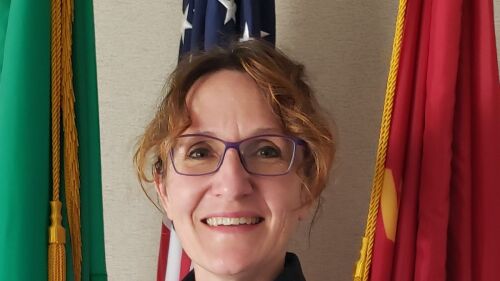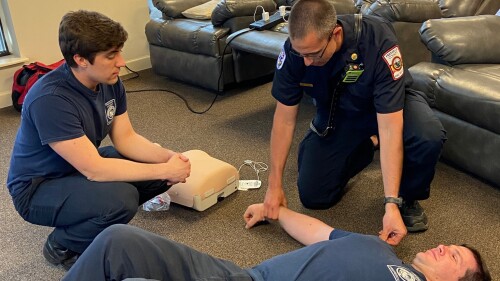Strategic thinking is a reasoning process that involves developing plans, goals and actions that can lead to a desired future outcome. It is a critical skill that individuals, organizations and leaders must possess to navigate the complex and ever-changing landscape of the modern world. At its core, strategic thinking is about making informed decisions that optimize resources, create competitive advantages and achieve long-term success.
Strategic thinking encompasses several key components, including:
- Vision and goals. At the heart of strategic thinking lies a clear and compelling vision of the future. Individuals or organizations must have a well-defined purpose and a set of overarching goals that they aspire to achieve. These goals serve as the guiding star, providing direction and purpose to every action and decision.
- Environmental scanning. A strategic thinker is acutely aware of the external environment in which they operate. This involves monitoring and understanding economic, political, technological and social trends and their potential impact. By being attuned to the broader context, strategic thinkers can identify both opportunities and threats.
- Critical thinking. Effective strategic thinkers possess strong critical thinking skills. They can evaluate situations and information objectively, distinguishing between fact and opinion. They can also identify underlying assumptions and potential biases that might cloud judgment.
- Resource allocation. Strategic thinking involves the allocation of resources, whether they are financial, human or time related. Decision-makers must determine how to allocate these resources efficiently to achieve the desired goals. This includes prioritizing initiatives and projects.
- Risk management. Essential in any strategic plan are risks and uncertainties. A strategic thinker assesses these risks and develops contingency plans to mitigate potential negative outcomes. This proactive approach allows for adaptability in the face of unforeseen challenges.
- Long-term perspective. Unlike tactical or short-term thinking, strategic thinking is future oriented. It considers the implications of decisions not only in the present but also over an extended time horizon. This long-term perspective helps avoid short-sighted decisions that might provide quick wins but harm long-term sustainability.
- Innovation and creativity. Strategic thinkers often embrace innovation and creative problem-solving. They are not bound by tradition and are willing to explore new approaches and technologies that can lead to competitive advantages.
The importance of strategic thinking
There are several benefits of employing strategic thinking for leaders as well as their organizations, including:
- Competitive advantage. In a competitive global economy, those who can think strategically are more likely to gain and maintain a competitive edge. They can anticipate market trends, identify unmet needs, and develop innovative solutions that set them apart from competitors.
- Resource optimization. By carefully considering resource allocation, strategic thinking ensures that organizations make the most of their limited resources. This can lead to cost savings and improved efficiency.
- Adaptability. Strategic thinking promotes adaptability in the face of change. In a world where disruption and uncertainty are the new normal, having a strategic mindset allows individuals and organizations to pivot and thrive in the face of adversity.
- Sustainable growth. Sustainable growth is a central objective of strategic thinking. By looking beyond short-term profits, it enables long-term prosperity while considering the environmental and social impacts of actions.
- Effective decision-making. Strategic thinking results in better decision-making. It helps decision-makers avoid impulsive or reactionary choices and instead focus on those that align with overarching goals and values.
- Alignment. Strategic thinking helps align the efforts of a team or an organization. When everyone shares a common vision and understands their role in achieving it, collaboration becomes more effective.
- Leadership. Leaders who possess strategic thinking skills are more likely to inspire confidence and loyalty among their teams. They can articulate a compelling vision and provide a clear path to achieve it.
5 questions to sharpen your strategic thinking
Strategic thinking can sometimes feel overwhelming, leaving us unsure of how to navigate our careers and businesses effectively. However, by asking ourselves key questions, we can clarify our strategic thinking and gain a clearer vision of our goals. Here are five essential questions to help sharpen your strategic thinking:
- What are your aspirations? Begin by identifying where you want to be. Your goals, strategies and actions should all align with your desired destination. Do you aspire to become a CEO or run your own company? Clarify your short-term and long-term goals and envision the future you desire. Write it all down and think big!
- Where do you currently stand? Evaluate your current situation comprehensively. Assess your skills, resources and assets. Identify your strengths, weaknesses, opportunities and risks within your current job or business. Determine whether you are satisfied with your current circumstances or if you seek something more. Map out your network and evaluate the value you provide and receive from your connections. Create a self-inventory to gain a clear understanding of your starting point.
- What can you control and change? Consider what aspects of your situation are within your control. Identify areas that can be streamlined or eliminated. Determine what needs to be added, enhanced or modified to progress towards your goals. This may involve seeking training, networking opportunities, investment advice or strategic career planning. Focus on what you can influence and act accordingly.
- What resources and support do you need? Revisit your self-inventory and identify the skills, resources, knowledge and connections you require to move closer to success. If this seems overwhelming, consider seeking guidance from a mentor or life coach who can help you navigate the path ahead. Surround yourself with individuals who can provide the necessary support and expertise to help you achieve your goals.
- How can you balance success and enjoyment? Remember that pursuing success should not come at the expense of a joyless life. Take the time to enjoy activities that bring you pleasure. Envision the future successful version of yourself and consider what brings you happiness. Whether it’s staying in luxurious hotels, working part-time, or driving your dream car, incorporate elements of your future life into your present.
Find ways to enjoy the journey towards your goals and create a vision that is worth striving for.







